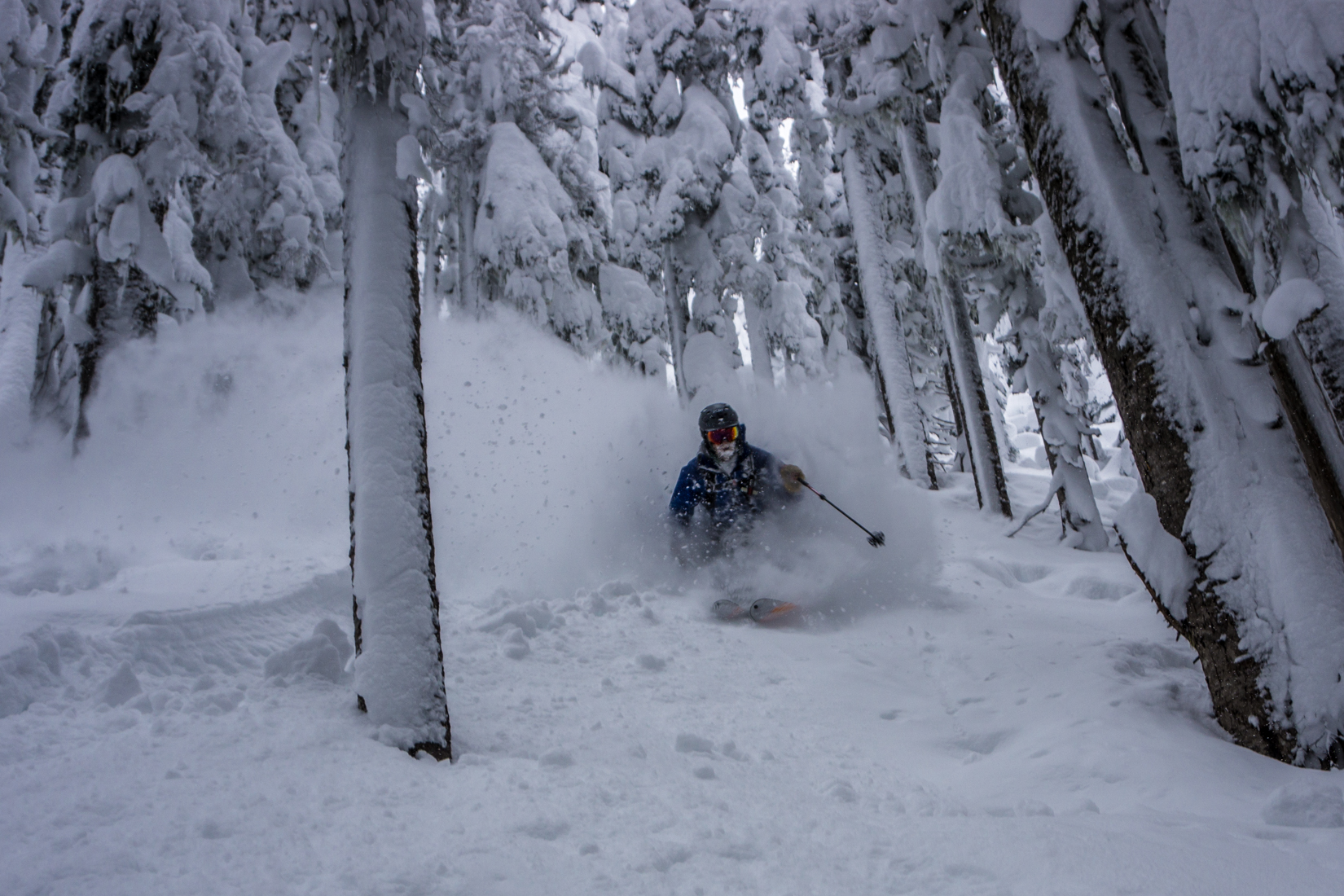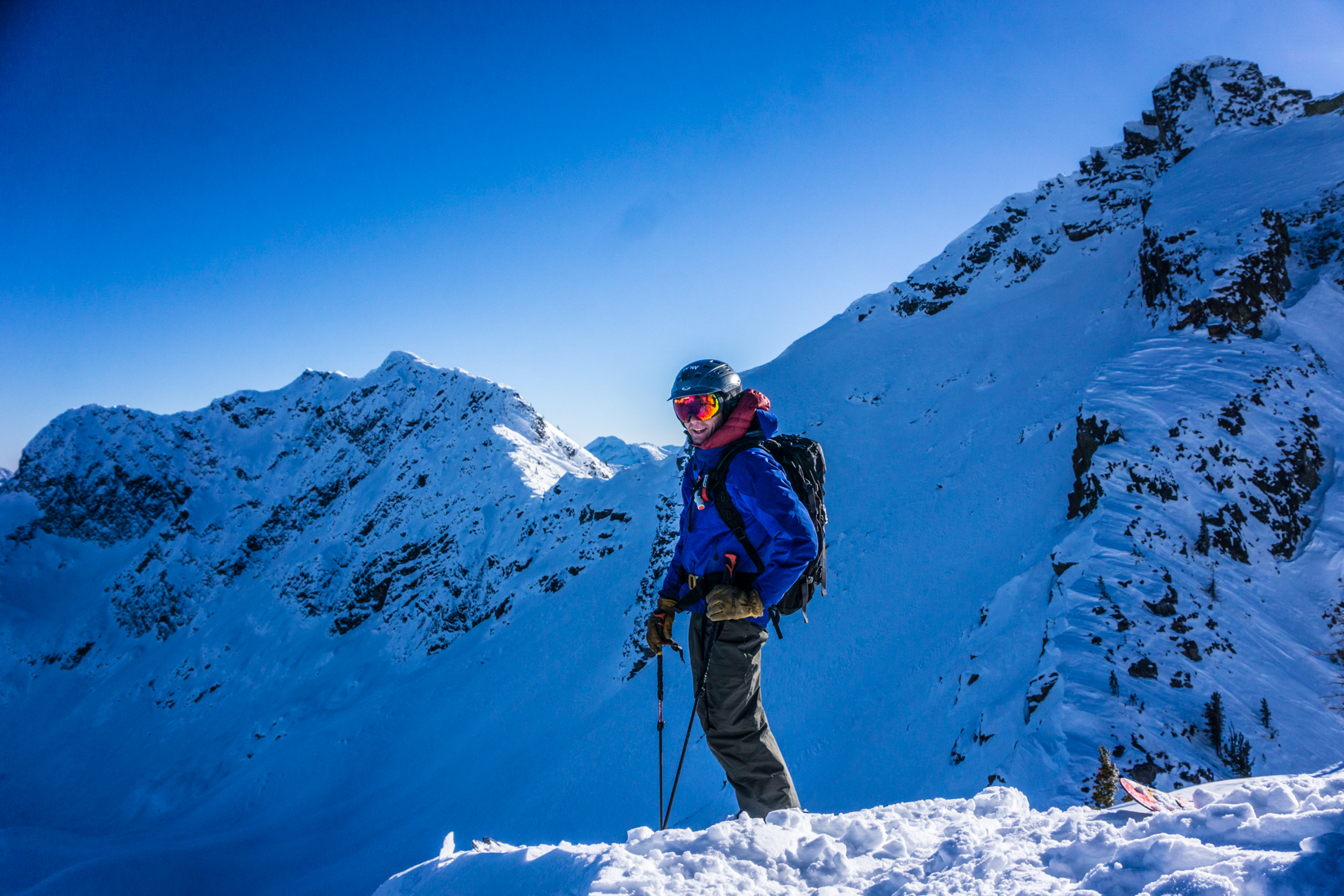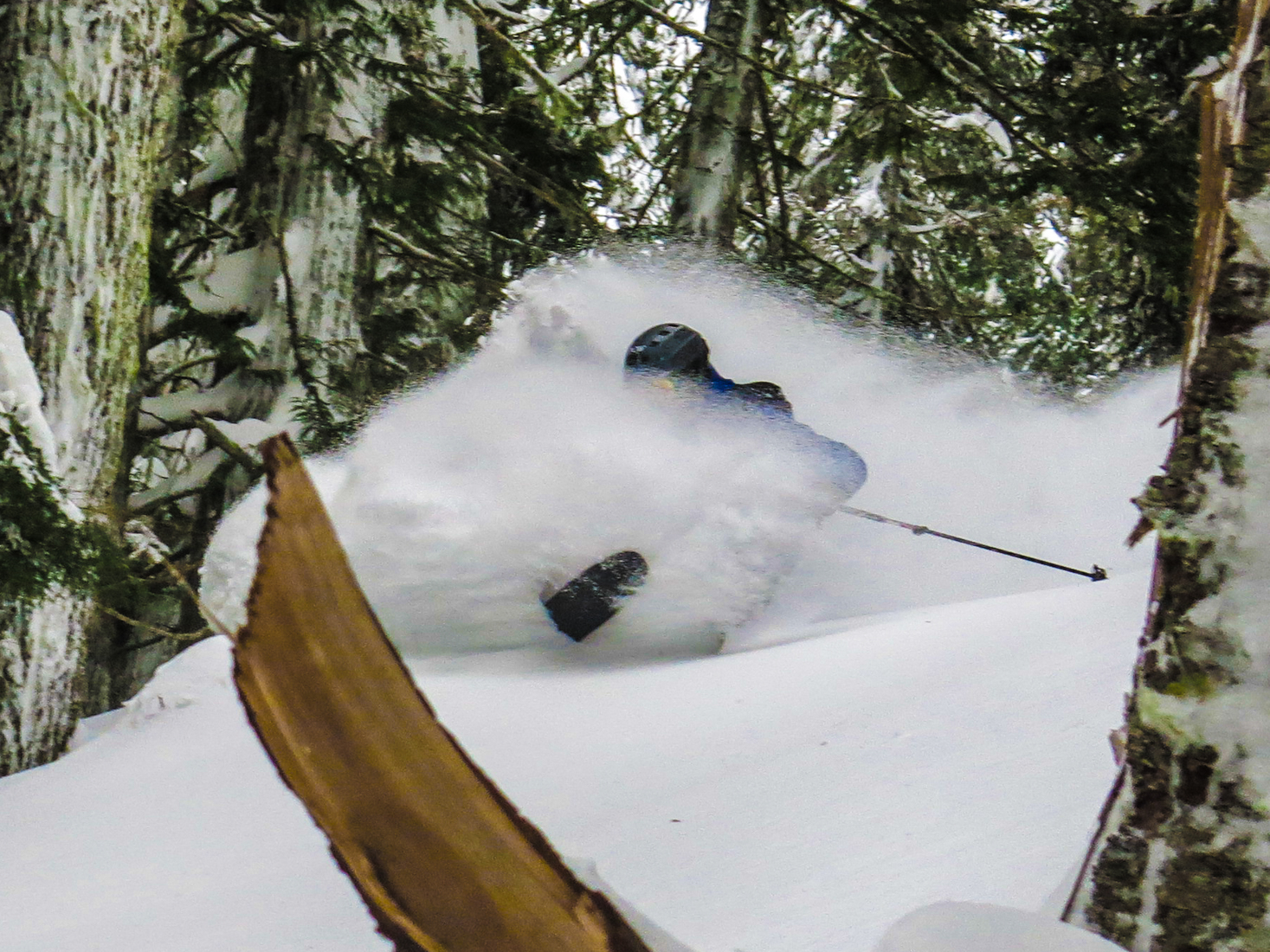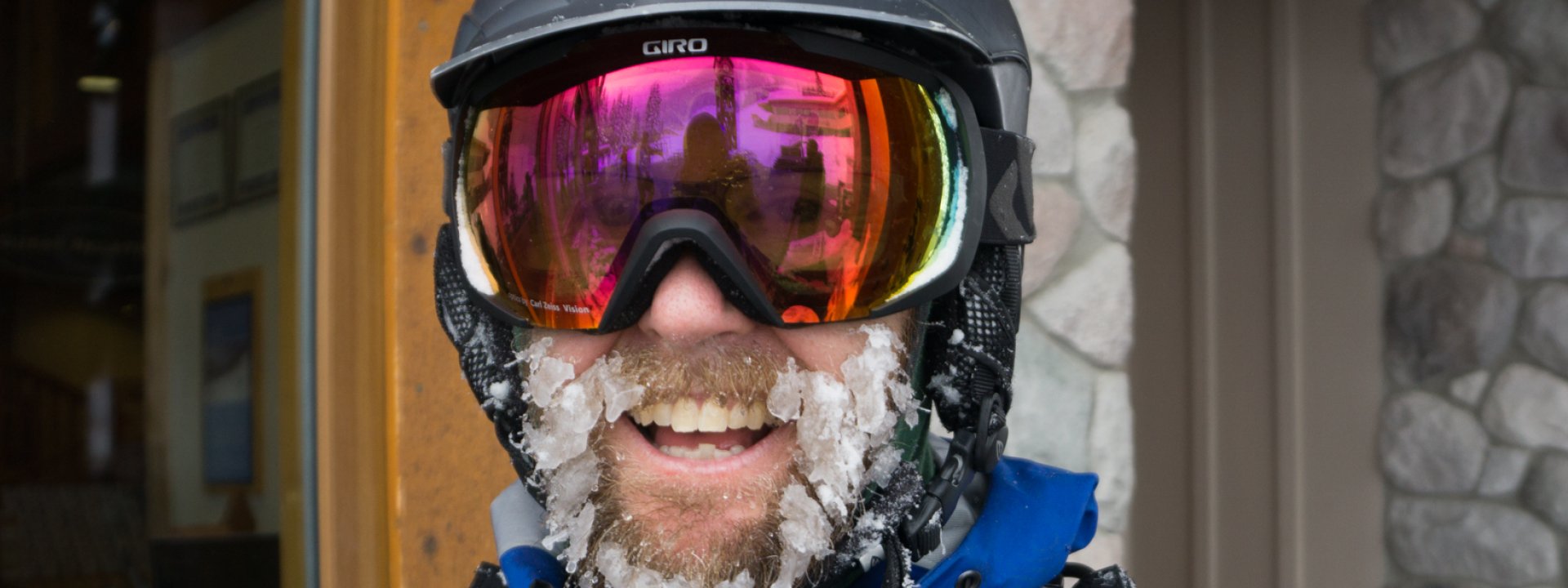What makes a good backcountry ski partner.
This is a picture of my bestie (my BBSP if you will – best backcountry ski partner). His name is Mike. He likes to ski pow. This picture was taken yesterday after skiing run after run of over-the-head blower at Stevens Pass.
Over the past decade Mike has become my most trusted backcountry ski partner, but why? What makes a good backcountry ski partner? It’s different for everyone but here are a few critical elements that make our partnership work.
#1 Communication. Communication is by far the most important aspect of making good decisions in the backcountry. For some reason it’s just easier to talk with Mike about hazards and where we think the best skiing is going to be for the day. It never feels like either one of us is trying to prove anything and both people value the other person’s input. A big part of this ease of communication has developed over the years. Rarely does this ease of communication happen right off the bat. I’ve had a few cases of this in the past, but it often takes years of practice to develop.

#2 Similar Risk Acceptance. Being on the same page when it comes to risk acceptance is critical. Some people think that bringing along that one person that is more risk adverse will help the group dynamics and make things safer, but from what I’ve seen it often has the opposite effect. Mike and I both have families and want to come home safe at the end of the day, but we are also honest about the risks we are taking and know we are exposing ourselves to serious risks when skiing avalanche terrain. There is no way we have all of the answers and we may get surprised one day.
I’ve had friends die in avalanches and have seen what that has done to their families. I know I’m not immune to this potential situation, but I also know how important skiing is to my happiness and how it’s shaped me as a person. It’s definitely made me a better father, a better husband and a better person in general. The risk is there but fortunately the rewards outweigh the risks.
#3 Similar Goals. Mike loves skiing powder and exploring new terrain as much as I do. That being said, he is happy to ski mellow terrain and skip the money line if conditions dictate. He knows that there will be many more powder days ahead as long as we continue to make good decisions.

#4 Complimentary Backgrounds. Having a partner with a different perspective on things is pretty important. Fortunately Mike has spent some time skiing in other ranges and with other partners and has learned a lot from those experiences. What he contributes to our partnership is invaluable. What I get to contribute to the partnership is solid consistency with snowpack and avalanche observations and formal training as a guide and avalanche observer. Mike has a “real” job and doesn’t get out in the backcountry as much as I do, but I get to fill him in on what I’ve been seeing and then he gets to take it from there.

#5 Similar fitness and travel strategies. Being able to share trailbreaking duty and wanting a similar sized day is helpful when it comes to taking good observations throughout the day. Each person gets a little time in back where they have more time and energy to focus on observations. Also, that time out front gives them a good feel for what the snow is doing. I’m often amazed how much information I pick up while breaking trail.
Being willing to stop the day and take some more time consuming observations as needed is also important for a successful partnership (in my opinion). It’s so easy to skip the quick dig and rely on terrain to manage the hazard, but you can get a lot of information quickly if you get good at digging, and you only get good at digging if you do a lot of digging.
We also have a unique situation where we often use snowmobiles to access ski terrain. Having a partner with a reliable machine and the skills to get up and down the mountain without epicing is also pretty important. The less time you have futzing with the snowmobiles the more time and energy you have for the more important things.
Like I said, there are many factors that come into play when creating a good backcountry ski partnership. I hope your partners are as good as mine. I know when I go out with my BBSP I’m safer and more likely to get good skiing in. What more could I ask for in a partnership?



